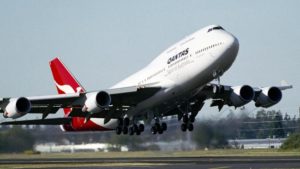Home » Commentary » Opinion » Airport regulation calls take off
· Ideas@TheCentre
 Airlines’ ongoing calls for greater government regulation of airport fees ignore many of the benefits these levies can bring to both themselves and their passengers.
Airlines’ ongoing calls for greater government regulation of airport fees ignore many of the benefits these levies can bring to both themselves and their passengers.
Airlines for Australia and New Zealand (a body representing some of Australia and New Zealand’s largest carriers) says regulation will end price gouging by airport monopolies, and boost the Australian economy. While the CIS opposes greater regulation at airports, airlines too should take a step back and consider where the profits are going.
Privately owned airports can do what they wish with surplus revenue. And fortunately for the airlines, numerous airports across the country are investing these funds in infrastructure improvements that will directly benefit some of our largest carriers.
New runways, terminals and better car parking facilities will expand the capacity of the nation’s airports, allowing carriers to operate more flights and better deal with major disruptions. This will also enable airlines to hire more staff and offer an improved service for passengers — all factors that can improve performance, increase profits and boost the economy.
However, the biggest beneficiaries of infrastructure developments will be consumers — the people major airlines suggest will benefit most from regulation-derived price cuts. Greater airport capacity means a larger number of carriers can operate from a facility, introducing competition that would drive down prices.
A constant stream of new players has entered the Australian market in recent years. Airlines such as Zoot, Air Canada and Samoa Airways have all expanded in the region — offering passengers alternatives in price, service and destination. More will surely follow as the capacity of airports increases.
It is this, perhaps, that might have some of the biggest players worried. For a long time, a small number of operators have maintained relative market dominance over our airspace. As they are increasingly challenged by new competitors, Australia’s big airlines could be looking for something to win over consumers.
However, championing increased regulation isn’t the answer. It was reduced for a reason in 2002 — to realise the full benefits of privatisation for consumers and airlines. The current airport infrastructure boom is surely an example of this working to full effect.
Airport regulation calls take off